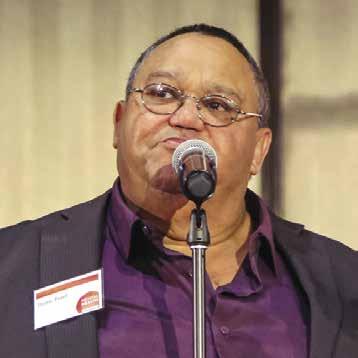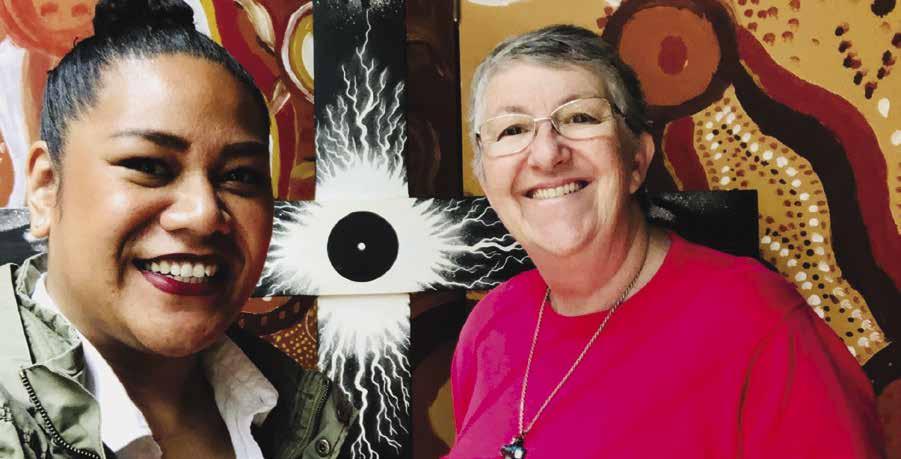
2 minute read
Australia
Traditional and cultural healing during COVID-19, bushfires and drought
Photo: Richard Wainwright
Advertisement

Founder Red Dust Healing, Tom Powell
Tom Powell, founder of Red Dust Healing. Photo: Red Dust Healing. Tom Powell, a proud Warramunga Man from the Wiradjuri Nation, saw firsthand during his time as an Aboriginal Programs Officer how a history of dispossession and powerlessness has created patterns of trauma and a feeling of rejection in many First Australian communities.
Tom recognised the need for an initiative based on traditional healing practices, and created the unique Red Dust Healing program, one of the few mental health programs developed from an Indigenous perspective. Since founding Red Dust Healing 13 years ago, Tom has conducted cultural healing workshops with over 16,000 people in Australia and overseas. The program focusses on empowering participants to be a part of their own solution by restoring family structures and reconnecting participants to traditional ways of healing. Participants are encouraged to examine how past traumas and ongoing marginalisation and discrimination have impacted them, and to find new ways to respond to these challenges. Participants in the program learn new tools to critically reflect on their decisions, and work towards making positive and lasting changes using a variety of specially developed tools to visualise their strengths and imagine a better future. These tools have been especially crucial in a year marked by crises for many First Australian communities, who have lost sacred sites to the bushfires and livelihoods to the COVID-19 pandemic. “People are struggling with a lot of anxiety, fear and trauma,” says Tom. “Trauma is like the smoke of the bushfire and so you can be affected by smoke inhalation, but the real issue is dealing with it. If you don’t put out the fire the smoke will reappear. And the underlying factor to all that is dealing with people’s rejection, with their abuse, neglect, abandonment, the domestic violence, the grief and loss.” These skills are especially important to cope with the combined challenges First Australians faced this year. “Some people mention that they feel like they’re losing control of their life,” says Tom. “But you do the things that you can control and stop worrying about the things you can’t control. It’s about making good choices.”
Program achievements
The current program phase focusses on training new trainers in Red Dust Healing tools so that more communities can be equipped with the skills to create change. Red Dust Healing has transitioned to digital workshops in response to the COVID-19 travel restrictions, which has increased the outreach of the program to remote areas including the Kimberley.










